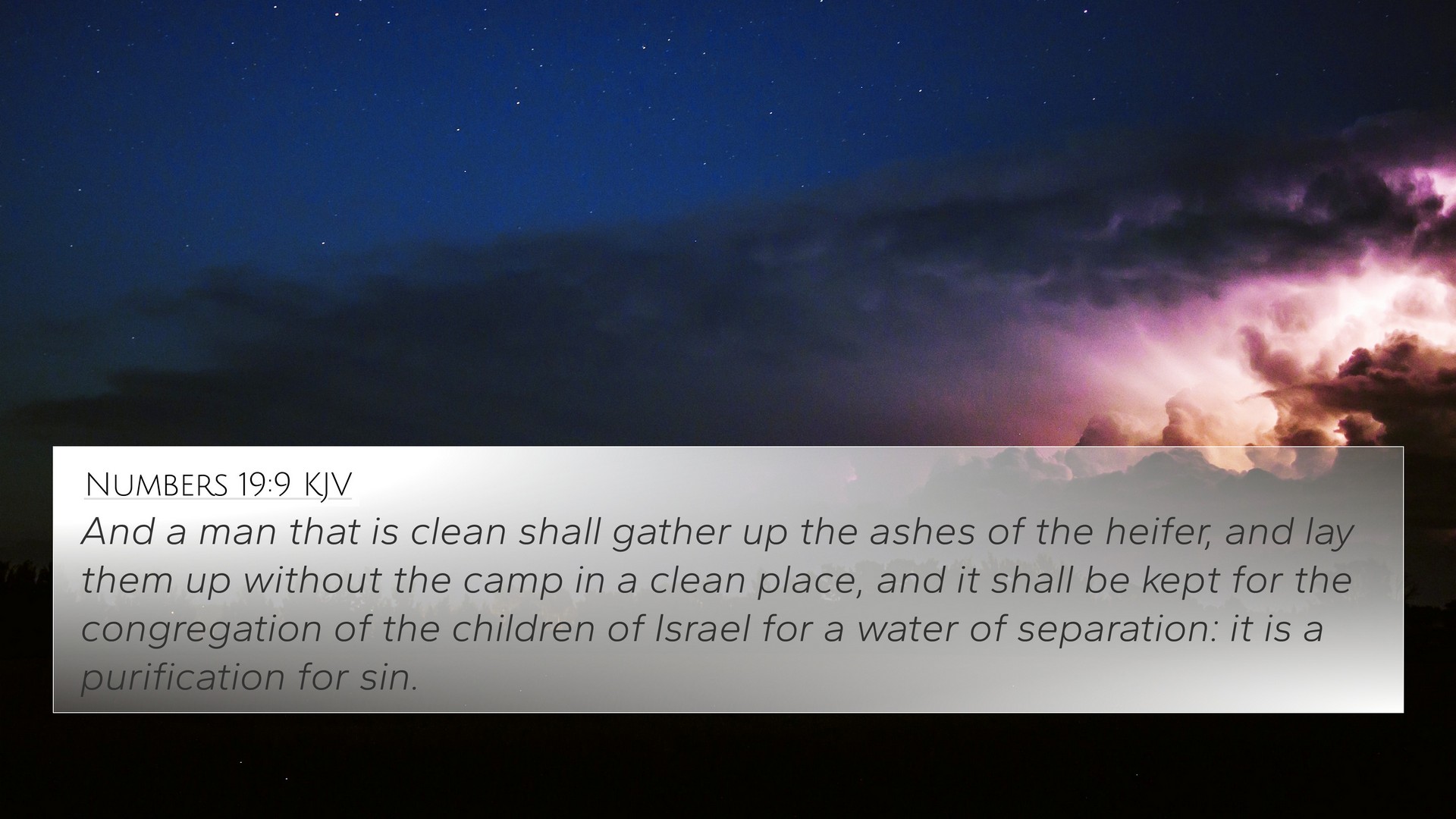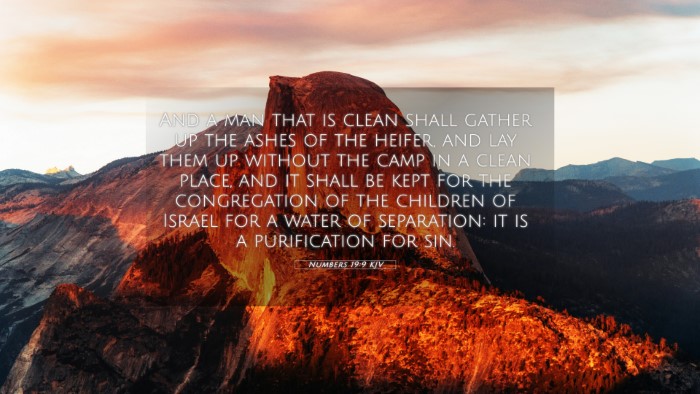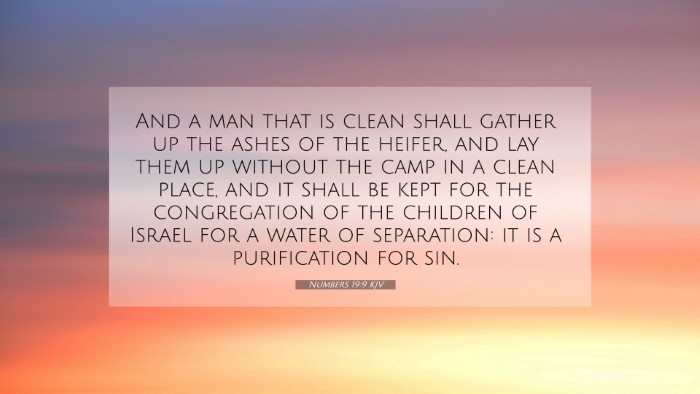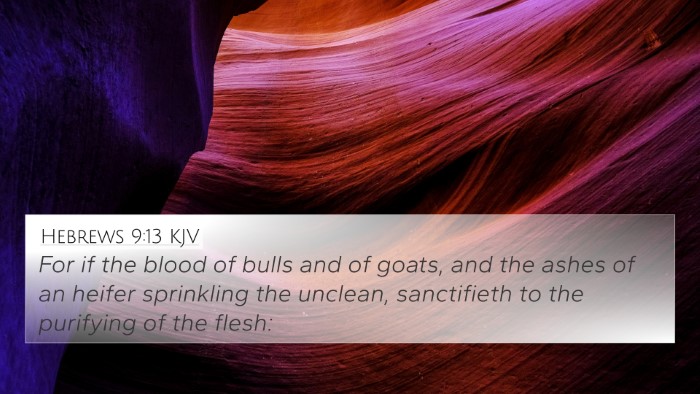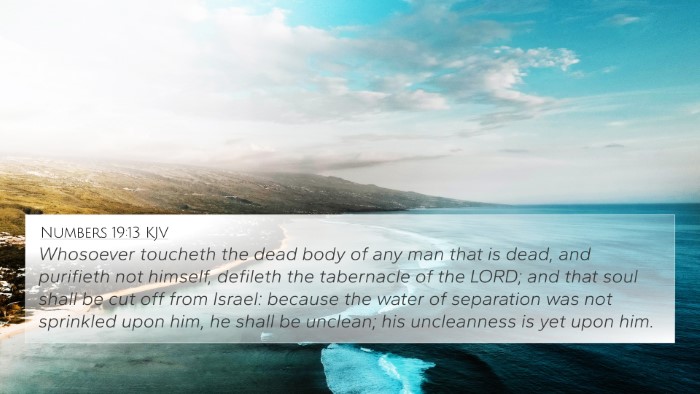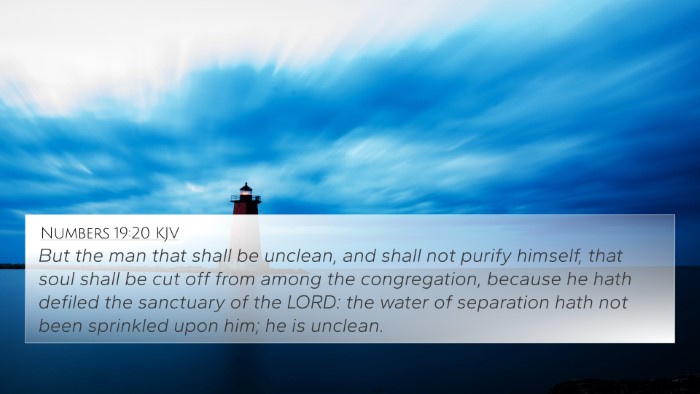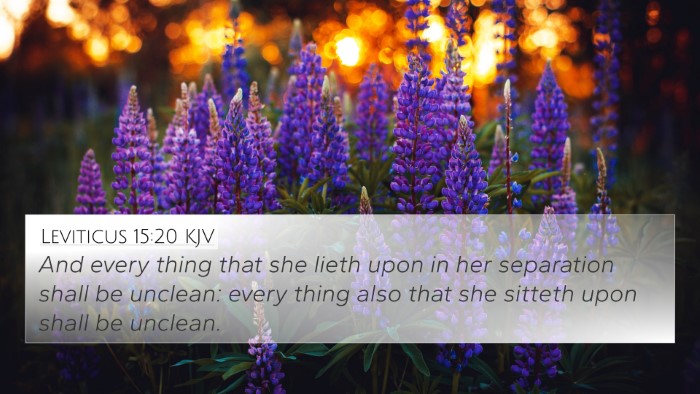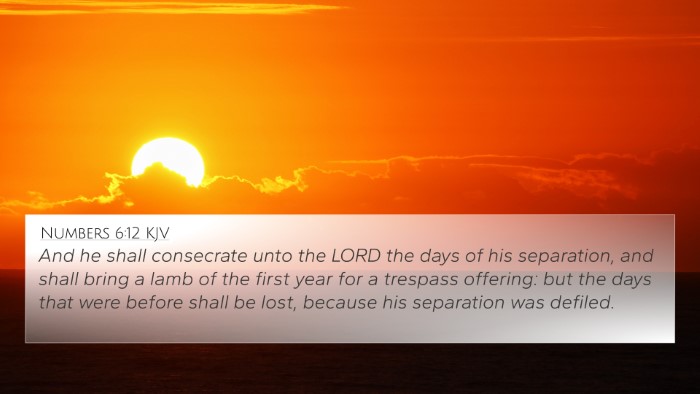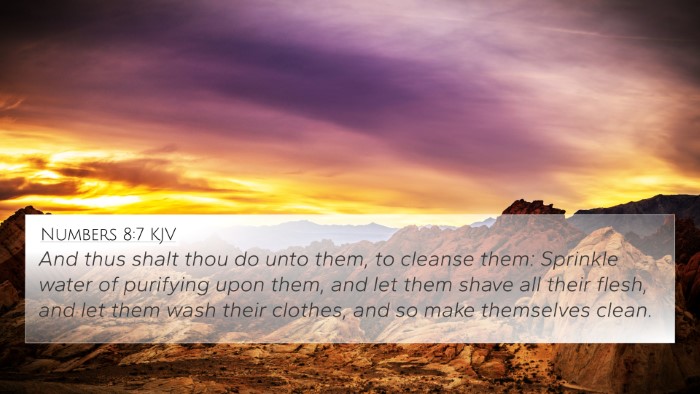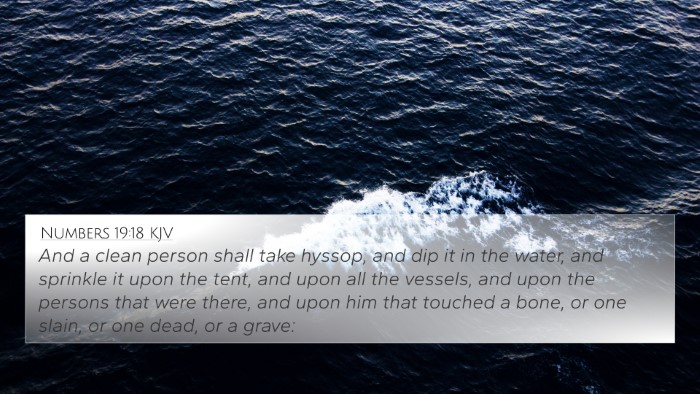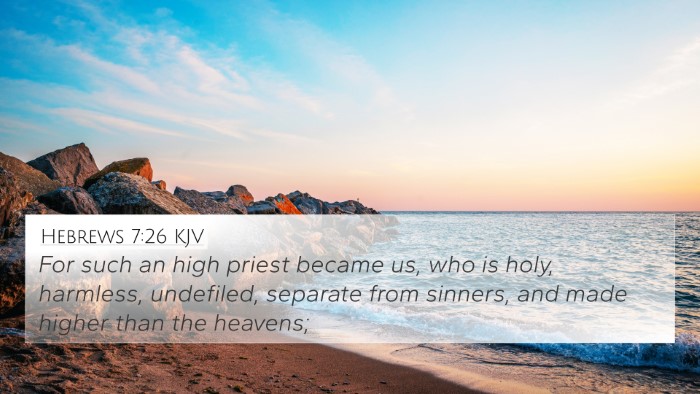Understanding Numbers 19:9
Verse: "And a man that is clean shall gather up the ashes of the heifer, and lay them up without the camp in a clean place, and it shall be kept for the congregation of the children of Israel for a water of separation: it is a purification for sin."
Summary of Biblical Significance
Numbers 19:9 serves as a cornerstone for understanding the importance of purity and atonement in the Israelite community. This verse describes the process of dealing with the ashes of the red heifer, which played a crucial role in ceremonial cleansing, reflecting larger themes of sin, purification, and redemption throughout the Bible.
Insights from Commentaries
- Matthew Henry: Henry emphasizes that the ashes of the red heifer symbolize purification from sin. He explains the necessity for the people of Israel to maintain ritual cleanliness, which allows them to approach God and maintain their covenant relationship with Him. The act of gathering ashes is not merely practical but highly symbolic of the ongoing need for atonement.
- Albert Barnes: Barnes elaborates on the motivations behind this purification ritual. He points out that the red heifer, without blemish, reflects the ideal for offerings to God. The process serves as a regular reminder of sin's consequences and the need for continual reconciliation with God, which is achieved through this purification method.
- Adam Clarke: Clarke discusses the theological implications of this verse, connecting the ritual to the nature of sin and the need for a means of atonement. He highlights that the red heifer's ashes are a metaphor for the cleansing blood of Christ, drawing parallels between Old Testament practices and New Testament fulfillments.
Thematic Connections
The themes presented in Numbers 19:9 resonate throughout both Old and New Testaments, aligning with various scripture passages that discuss atonement, purification, and the significance of ritual cleanliness. Below are reflective cross-references:
- Hebrews 9:13-14: "For if the blood of bulls and of goats, and the ashes of an heifer sprinkling the unclean, sanctifieth to the purifying of the flesh..." - which refers to the purification themes prevalent in Numbers 19.
- Leviticus 14:4-7: Instructions on the cleansing of the leper, detailing the importance of purification rites.
- 1 John 1:7: "But if we walk in the light, as he is in the light, we have fellowship one with another, and the blood of Jesus Christ his Son cleanseth us from all sin." - linking the need for cleansing to Christ's atonement.
- Ezekiel 36:25: “Then will I sprinkle clean water upon you, and ye shall be clean…” - metaphorically resonating with the purification from ashes described in Numbers.
- Romans 3:25: "Whom God hath set forth to be a propitiation through faith in his blood..." - connecting the process of atonement through Christ's sacrifice to the ceremonial practices of the past.
- Psalm 51:7: "Purge me with hyssop, and I shall be clean: wash me, and I shall be whiter than snow." - a cry for purification and renewal in relation to sin.
- Isaiah 1:18: "Come now, and let us reason together, saith the Lord: though your sins be as scarlet, they shall be as white as snow." - emphasizing the transformative power of divine cleansing.
- John 15:3: "Now ye are clean through the word which I have spoken unto you." - suggests that divine communication also brings about purification.
- James 4:8: "Draw nigh to God, and he will draw nigh to you. Cleanse your hands, ye sinners..." - encouraging active participation in the purification process before God.
Practical Application
This verse and its implications encourage believers today to reflect on their own need for spiritual cleansing and to actively seek atonement through Christ's sacrifice. Understanding the background of scriptural purification rituals deepens one's appreciation for God's plan of redemption.
Tools for Bible Cross-Referencing
Engaging deeply with Scripture involves understanding connections between verses. Using resources such as:
- Bible Concordances: A vital tool for searching thematic connections.
- Cross-reference guides: Provide contextual insights for studying comparative verse analysis.
- Bible Study Software: Many modern tools allow for quick cross-referencing and thematic exploration.
Conclusion
Numbers 19:9 is not just a verse about ritual and purification; it serves as a vital reminder of the continuous need for spiritual cleansing in our lives. The insights from the commentaries shed light on the depth of God's laws and their foreshadowing of Christ's ultimate sacrifice.
